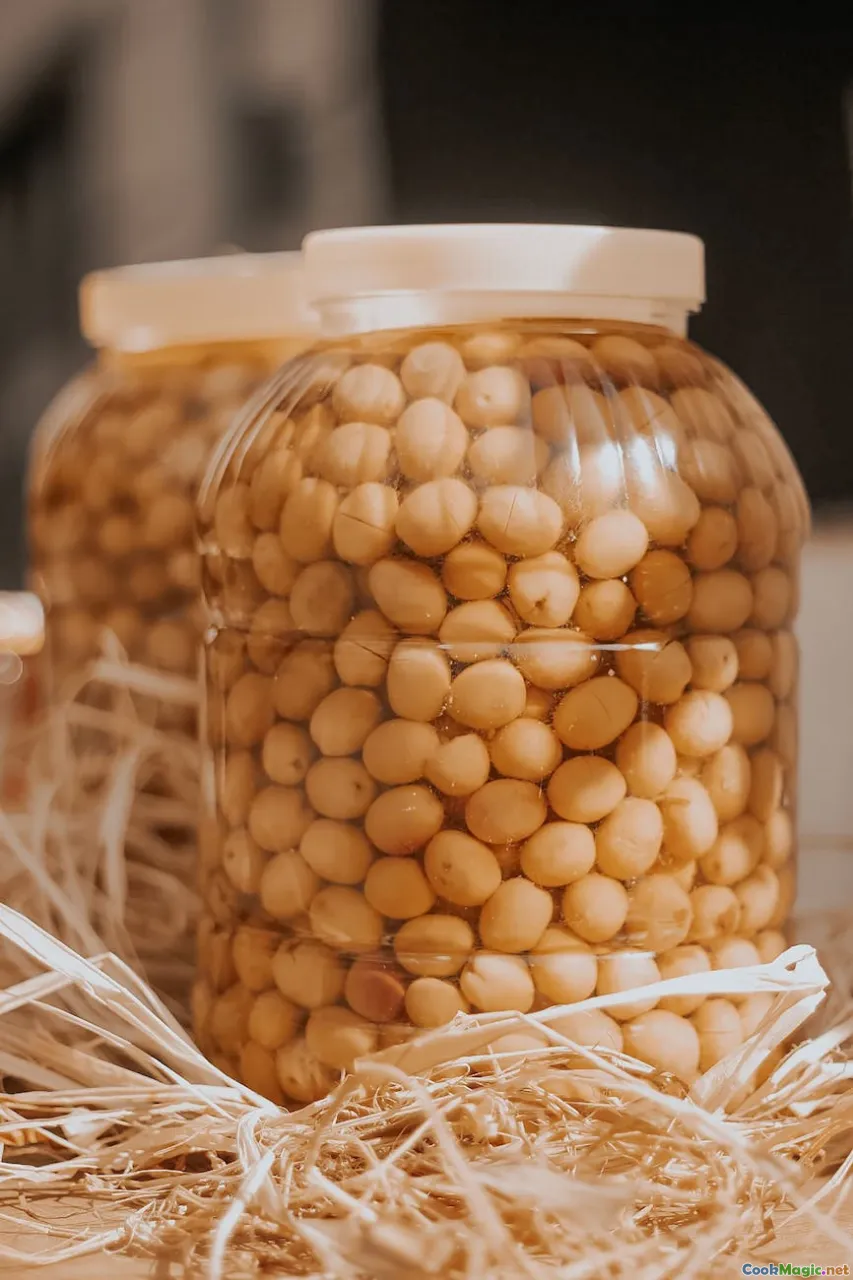Reviving Greek Preserved Lemon Traditions
8 min read Discover the rich history and vibrant flavors of Greek preserved lemons, and learn how to revive this centuries-old tradition in modern kitchens. May 09, 2025 18:00
Reviving Greek Preserved Lemon Traditions
Imagine strolling through a sun-drenched Greek village, where the air is thick with the aroma of citrus and herbs, and the walls are lined with jars brimming with golden lemons. This is not just a picturesque scene; it’s a living testament to a centuries-old preservation tradition that has sustained Greek culinary culture. Preserved lemons, or 'kurkuma', are a cornerstone of Greek kitchens, infusing dishes with a tangy, complex flavor that elevates everything from stews to salads. Yet, in recent decades, this cherished practice has waned, overshadowed by modern preservatives and changing tastes. Today, we embark on a journey to revive and celebrate this ancient craft, blending tradition with contemporary culinary artistry.
The Cultural and Historical Significance of Preserved Lemons in Greece
A Heritage Rooted in Simplicity and Sustainability
Greek cuisine, renowned for its emphasis on fresh, local ingredients, also boasts a deep tradition of food preservation. Preserved lemons, traditionally made during the citrus harvest season, reflect a resourceful approach to maximizing the bounty of the land. In the Mediterranean climate, lemons ripen abundantly, and preserving them became a way to enjoy their bright, zesty flavor year-round.
Historically, these preserved lemons played a vital role in Greek households, especially in rural areas where access to fresh produce was seasonal. The process involved fermenting the lemons in salt and sometimes herbs like oregano or thyme, creating a tangy, salty condiment that could be stored for months. These jars would sit on kitchen shelves, aging gracefully, their contents transforming into a deeply aromatic ingredient that would later enhance stews, dips, and even bread.
A Symbol of Hospitality and Community
Sharing preserved lemons was also a social act — a gesture of hospitality, a gift exchanged among neighbors, and a testament to the enduring bonds of community. The act of preserving was often a family affair, passed from generation to generation, with each household adding its signature touch.
The Revival of Preserved Lemons: A Modern Perspective
Rediscovering Ancient Flavors
In recent years, there’s been a renaissance of interest in traditional foodways, driven by chefs and home cooks eager to reconnect with authentic flavors. Greek chefs are now experimenting with preserved lemons, incorporating them into contemporary dishes that pay homage to their roots. From the delicate balance of tang in a seafood stew to the bright note in a chickpea salad, preserved lemons add depth and vibrancy.
A Sustainable and Flavorful Alternative
In a world increasingly conscious of food sustainability and natural ingredients, preserving lemons offers an eco-friendly alternative to processed condiments. It’s a craft that requires patience and care, but the reward is a product that embodies the essence of Greek land and sea.
The Art and Technique of Preserving Lemons in Greece
Selecting the Perfect Lemons
The journey begins with choosing the right lemons—ideally organic, unwaxed, and firm. Traditional Greek varieties like 'lemonaki' are prized for their thick skins and aromatic zest. The lemons should be ripe but not overly soft.
Preparing the Lemons
Wash the lemons thoroughly, then cut off the tips and prick them multiple times with a fork or a toothpick to allow the salt and flavors to penetrate.
The Preserving Process
- Salting: Fill a sterilized jar with a generous layer of coarse sea salt.
- Layering: Place the prepared lemons into the jar, sprinkling each layer with more salt and adding optional herbs like oregano, bay leaves, or peppercorns.
- Sealing: Cover the lemons completely with additional salt and a bit of lemon juice or vinegar if desired.
- Fermentation: Seal the jar tightly and store it in a cool, dark place. Shake the jar gently every few days to distribute the salt and flavors.
Maturation
The lemons need to cure for at least 3-4 weeks, during which the flavors meld and the lemons soften. The result is a fragrant, tangy preserved lemon that can be chopped and used in myriad dishes.
Incorporating Preserved Lemons into Greek Cuisine
Classic Dishes Elevated
- Lemonato Soup: A hearty chicken and lemon soup, where preserved lemons add a layer of depth.
- Horta with Lemon: Boiled greens flavored with chopped preserved lemon and olive oil.
- Lemon-Marinated Fish: Fresh fish marinated with garlic, herbs, and chopped preserved lemons.
Modern Creative Uses
Beyond traditional recipes, preserved lemons can inspire innovative dishes:
- Lemon and Herb Flatbreads: Spread with whipped feta, topped with chopped preserved lemon.
- Mediterranean Grain Bowls: Quinoa or bulgur topped with roasted vegetables, feta, and preserved lemon.
- Salad Dressings: Blended into vinaigrettes for a tangy twist.
Personal Reflections and Tips for Enthusiasts
As someone who has explored Greek culinary traditions firsthand, I can attest to the transformative power of preserved lemons. The first time I made my own, I was struck by how humble ingredients—lemons, salt, herbs—could produce such a complex, layered flavor. It’s a mindful process, almost meditative, that connects you to the land and the generations of cooks before you.
Tips for Success:
- Use high-quality, organic lemons for the best flavor.
- Be patient; the magic happens during fermentation.
- Experiment with herbs and spices to create your signature preserved lemon.
- Keep your jars sterile to prevent spoilage.
Conclusion: A Delicious, Cultural Revival
Reviving the tradition of Greek preserved lemons is more than a culinary act; it’s a reconnection with history, community, and sustainability. By embracing this age-old method, modern cooks can add a touch of Greece’s sun-drenched landscapes to their tables, enriching their dishes with a taste of authenticity and depth. Whether as a simple condiment or a star ingredient, preserved lemons serve as a delicious reminder of Greece’s rich food heritage—a heritage worth preserving and celebrating, one jar at a time.
Embark on this preservation journey and let the vibrant, tangy aroma of Greek lemons inspire your kitchen and your soul. Opa!









